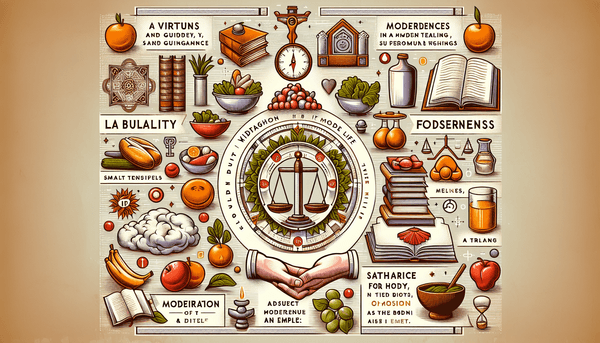Understanding Christian Denominations
Christianity, while founded on the core belief in Jesus Christ as Lord and Savior, encompasses a spectrum of denominations, each with unique interpretations and practices. One significant differentiator is the view of salvation. Some hold to the 'once saved, always saved' doctrine, suggesting that after accepting Jesus, one's salvation is secure (John 10:28-29), while others see it as a journey requiring continual faith and obedience (Philippians 2:12). Additionally, the role of tradition and human authority varies, with some denominations valuing the early church fathers' teachings and others focusing solely on Scripture as the doctrine's source (2 Timothy 3:16). Worship practices, such as the observance of sacraments, are also diverse; some view them as essential to salvation, while others see them as symbolic (1 Corinthians 11:24-26). Despite these differences, believers are urged to maintain unity and peace, as there is 'one Lord, one faith, one baptism' (Ephesians 4:4-6).
The Role of the Law and Commandments
The Law of Moses, including the Ten Commandments, served as the foundation of Israelite society and moral conduct (Exodus 20:1-17). However, in the New Testament, the role of the law shifts. Jesus Christ claims to fulfill the law (Matthew 5:17), establishing a new covenant based on faith. The apostle Paul explains that believers are no longer under the law but under grace, navigating the rich tapestry of Biblical themes led by the Spirit of God (Romans 6:14; Galatians 5:18). This transition highlights the transformative power of Jesus' teachings and sacrifice, liberating believers from the law's constraints and allowing them to live in the freedom and righteousness bestowed by the Spirit.
The Personal Journey of Faith
Embarking on a faith journey is a personal and transformative experience. Beginners often find solace in the Bible and prayer as they seek understanding and connection with God (Matthew 7:7-8). The importance of a faith-based community cannot be overstated, as it provides support, encouragement, and opportunities for spiritual growth (Hebrews 10:24-25). Integrating faith into daily life is essential; it's not just about beliefs but also about actions reflecting one's convictions (James 2:17-18). Challenges such as doubt and confusion can arise, but through prayer, study, and community, believers can discern God's will and find reassurance in His promises (Proverbs 3:5-6).
Predestination vs. Free Will
The debate between predestination and free will is a longstanding theological discussion within Christianity. Scriptures suggest that God has predestined plans for humanity (Ephesians 1:4-5), yet other passages emphasize the importance of choice and personal responsibility (Deuteronomy 30:19). This paradoxical coexistence of divine sovereignty and human freedom is one of the Bible's profound mysteries. Christians are encouraged to live purposefully, understanding that their choices matter, yet also trusting in God's overarching plan (Romans 8:28-30). Ultimately, it is the union of these truths that guides believers to lead lives that align with God's will and glorify Him.
Conclusion
As we traverse the multifaceted landscapes of faith and theology presented in the Bible, we gain a deeper appreciation for its teachings. From the steadfast faith of ancient figures like Abraham, Isaac, and Jacob, to the nuanced complexities of salvation, law, and divine sovereignty, the Bible serves as an inexhaustible resource for understanding our spiritual heritage and guiding our present journey. It calls upon us to embrace unity amidst diversity, to live by the Spirit rather than the letter, and to reconcile the intricacies of predestination with the authenticity of free will. In doing so, we find ourselves part of a grand narrative that stretches beyond time, bound by the eternal love of God and the shared hope of believers through the ages.






